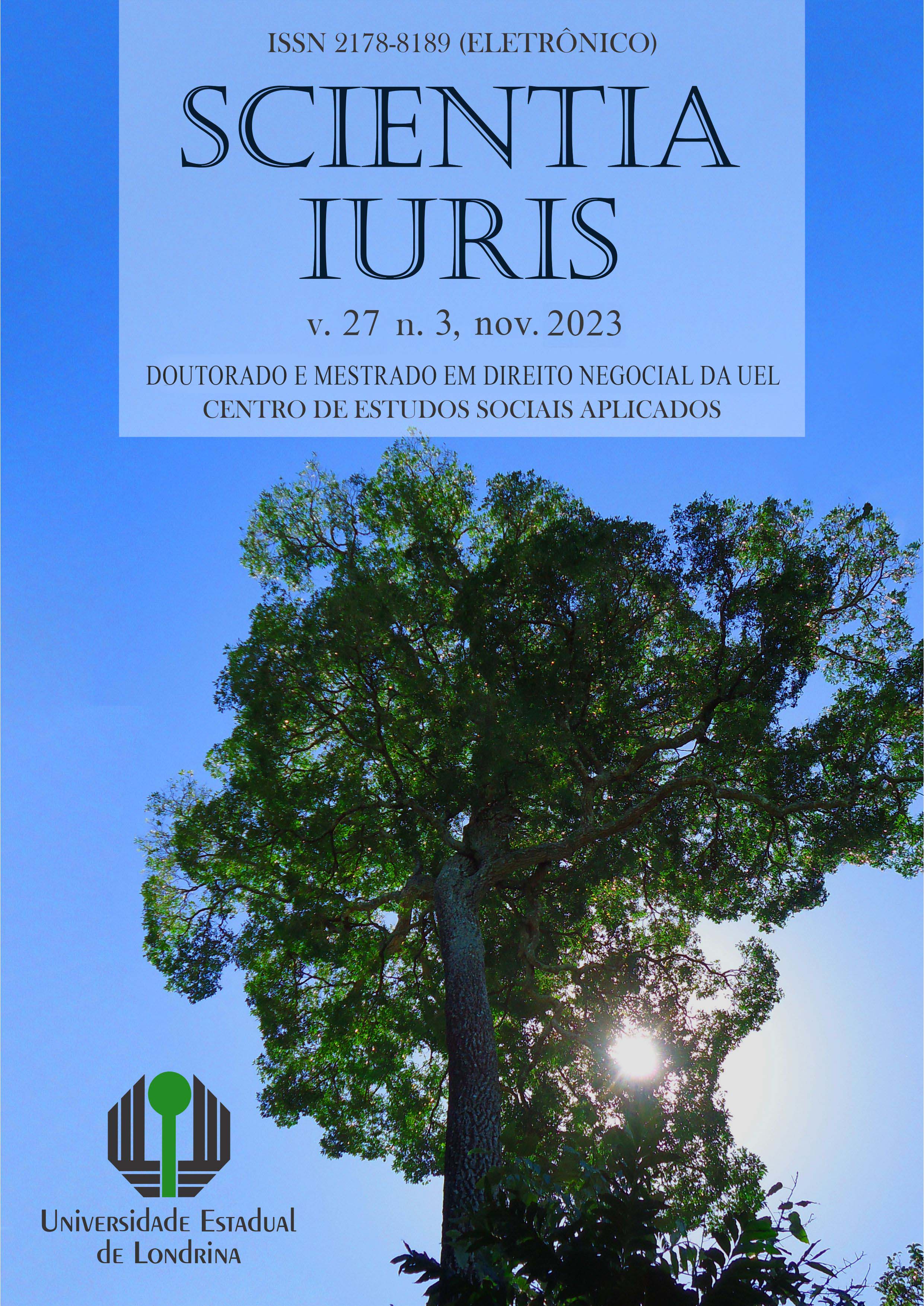The embryogenesis of brazilian tax systematisation resulting from the imperial monarchy period
DOI:
https://doi.org/10.5433/2178-8189.2023v27n3p137-154Keywords:
Imperial monarchical Brazil; tax; tax systematization.Abstract
This scientific article aims to analyze the historical-legal context of the formation of the fiscal State in Imperial Monarchical Brazil, with the ruptures and permanencies that occurred in the fiscal sphere being listed in the different stages of the Brazilian Empire. In the First Reign, the investigation of the tax institutes present in the Constitution of 1824 will be carried out. Therefore, in the Regency period, the tax reforms that were influenced by the division of public revenues between the central government, provinces and municipalities will be evidenced. Finally, the Second Reign was given an understanding of the social, political and economic conflicts that had an impact on fiscal policy and led to the collapse of the imperial form of government in Brazil.
Downloads
References
AMED, Fernando José; NEGREIROS, Plínio José Labriola de Campos. História dos tributos no Brasil. São Paulo: Edições SINAFRESP, 2000.
BALTHAZAR, Ubaldo Cesar. História do tributo no Brasil. Florianópolis: Fundação Boiteux, 2005.
BALTHAZAR, Ubaldo Cesar. O tributo na História: da antiguidade à globalização. Florianópolis: Fundação Boiteux, 2006.
BRASIL. Carta Régia, de 28 de janeiro de 1808. Abre os portos do Brazil ao commercio directo estrangeiro com excepção dos generos estancados. Coleção das Leis do Império do Brasil, Rio de Janeiro, RJ, 28 jan. 1808. Disponível em: http://www2.camara.leg.br/legin/fed/carreg_sn/anterioresa1824/cartaregia-35757-28-janeiro-1808-539177-publicacaooriginal-37144-pe.html. Acesso em: 13 ago. 2021.
BRASIL. [Constituição (1824)]. Constituição Política do Império do Brazil: texto constitucional elaborada por um Conselho de Estado e outorgada pelo Imperador D. Pedro I, em 25.03.1824. Disponível em: http://www.planalto.gov.br/ccivil_03/constituicao/constituicao24.htm. Acesso em: 13 ago. 2021.
BRASIL. [Constituição (1988)]. Constituição da República Federativa do Brasil. Brasília, DF, Senado Federal, 1988. Disponível em: http://www.planalto.gov.br/ccivil_03/constituicao/constituicaocompilado.htm. Acesso em: 13 ago. 2021.
CASTRO, Flávia Lages de. História do direito: Geral e Brasil. 11. ed. Rio de Janeiro: Editora Lumen Juris, 2016.
CORREIA, Emanuelle Araujo. Evolução histórica do tributo: limitação do poder de tributar. Diritto.it, fev. 2010. Disponível em: http://www.diritto.it/docs/28896-evolu-o-hist-rica-do-tributo-limita-o-do-poder-. Acesso em: 13 ago. 2021.
DEVEZA, Guilherme. Política tributária no período imperial. In: HOLANDA, Sérgio Buarque de (Org.). História geral da civilização brasileira: declínio e queda do império. 6. ed. Rio de Janeiro: Bertrand Brasil, 2004. p. 74-102. (História geral da civilização brasileira; t. 2; v. 6).
FERREIRA, Benedito. A história da tributação no Brasil: causas e efeitos. [S.l.]: Brasília, 1986. 260 p.
PALMA, Rodrigo Freitas. História do direito. 5. ed. São Paulo: Saraiva, 2015.
PARRON, Tâmis. A política da escravidão no Império do Brasil, 1826-1865. Rio de Janeiro: Civilização Brasileira, 2011.
NADER, Paulo. Introdução ao estudo do direito. 35. ed. Rio de Janeiro: Forense, 2013.
REALE, Miguel. Teoria do direito e do estado. 5. ed., rev. São Paulo: Saraiva, 2000.
SEVEGNANI, Joacir. A resistência aos tributos no brasil: o estado e a sociedade em conflito. 2006. 186 p. Dissertação (Mestrado em Direito) - Universidade do Vale do Itajaí, Itajaí, 2006. Disponível em: http://siaibib01.univali.br/pdf/Joacir Sevegnani.pdf. Acesso em: 03 set. 2016.
Downloads
Published
How to Cite
Issue
Section
License
Copyright (c) 2023 Rebeca Queiroz, Elisberg Bessa

This work is licensed under a Creative Commons Attribution 4.0 International License.
The journal reserves the right to modify, in the original text of the submitted article, normative, spelling and grammatical mistakes in order to maintain the cultured standard of language and the credibility of the journal. The journal will respect the authors' writing style. Changes, corrections or suggestions of conceptual order will be sent to the authors, when necessary. In such cases, the articles will be re-examined. The final exams will not be sent to the authors. The published works become the property of the journal, in other words, its total or partial reprinting is subject to the express authorization of the journal. In all subsequent citations, the original source of publication shall be cited and in the case of Photographic Speeches, shall be approved by the original author. The opinions expressed by the authors of the journal’s articles are of their sole responsibility.















